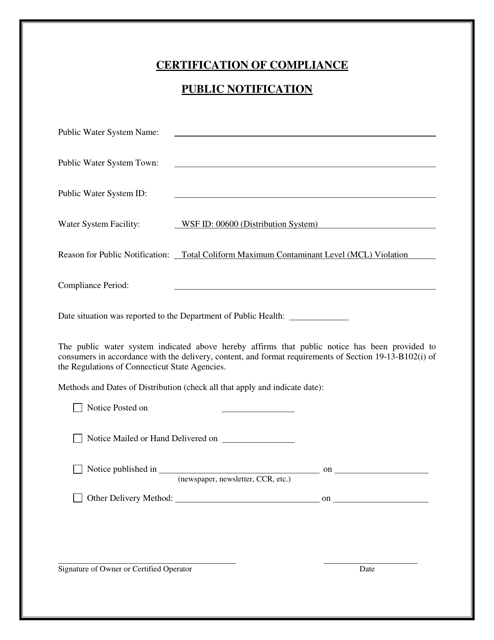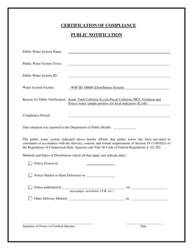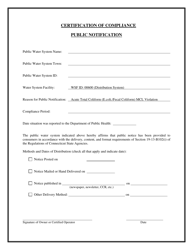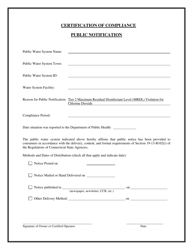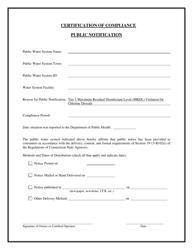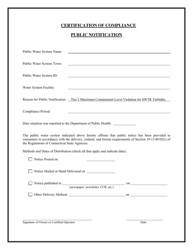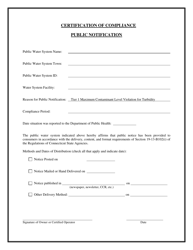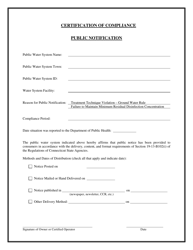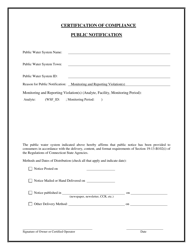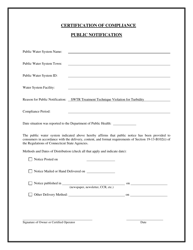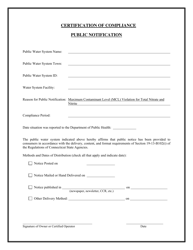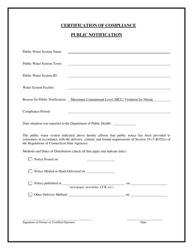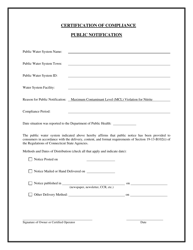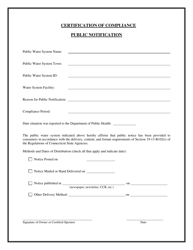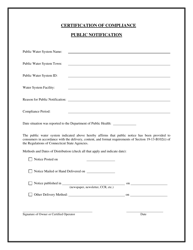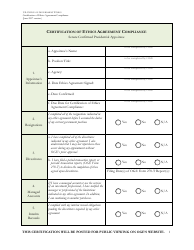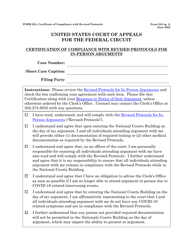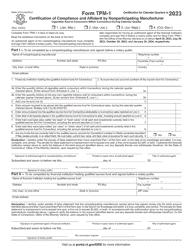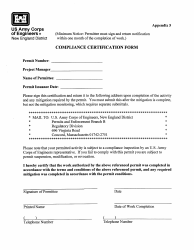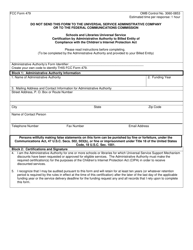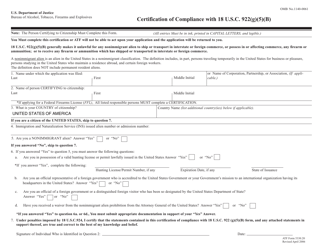Certification of Compliance Public Notification - Total Coliform Maximum Contaminant Level (Mcl) Violation - Connecticut
Certification of Compliance Public Notification - Total Coliform Maximum Contaminant Level (Mcl) Violation is a legal document that was released by the Connecticut State Department of Public Health - a government authority operating within Connecticut.
FAQ
Q: What is a Certification of Compliance Public Notification?
A: A Certification of Compliance Public Notification is a notice informing the public about a violation of a maximum contaminant level (MCL).
Q: What does "Total Coliform Maximum Contaminant Level (MCL) Violation" mean?
A: Total Coliform MCL Violation" means that the level of total coliform bacteria in the water has exceeded the maximum allowed limit set by the regulatory authorities.
Q: What is total coliform bacteria?
A: Total coliform bacteria are a group of bacteria commonly found in the environment, including the intestines of warm-blooded animals and in soil and vegetation.
Q: What is the maximum contaminant level (MCL)?
A: The maximum contaminant level (MCL) is the legal limit of a contaminant in drinking water set by the Environmental Protection Agency (EPA) to ensure its safety for public consumption.
Q: What happens during a total coliform MCL violation?
A: During a total coliform MCL violation, the water supplier must take corrective actions, such as additional disinfection or establishment of a public notification system, to address the issue and ensure the water's safety.
Q: Why is it important to notify the public about a MCL violation?
A: It is important to notify the public about a MCL violation to ensure transparency and allow individuals to take necessary precautions, such as boiling water or using alternative sources, to avoid potential health risks.
Q: What should I do if I receive a Certification of Compliance Public Notification for a total coliform MCL violation?
A: If you receive a notification, follow the instructions provided, which may include taking precautionary measures or contacting the water supplier for more information.
Q: Is water with total coliform bacteria safe to drink?
A: While the presence of total coliform bacteria does not necessarily mean the water is unsafe, it indicates a potential problem with the water system's sanitary integrity. Precautions, such as boiling water or using alternative sources, may be recommended.
Q: Who should I contact for more information about a total coliform MCL violation?
A: For more information about a total coliform MCL violation, contact your water supplier or the local health department responsible for overseeing water quality.
Form Details:
- The latest edition currently provided by the Connecticut State Department of Public Health;
- Ready to use and print;
- Easy to customize;
- Compatible with most PDF-viewing applications;
- Fill out the form in our online filing application.
Download a fillable version of the form by clicking the link below or browse more documents and templates provided by the Connecticut State Department of Public Health.
